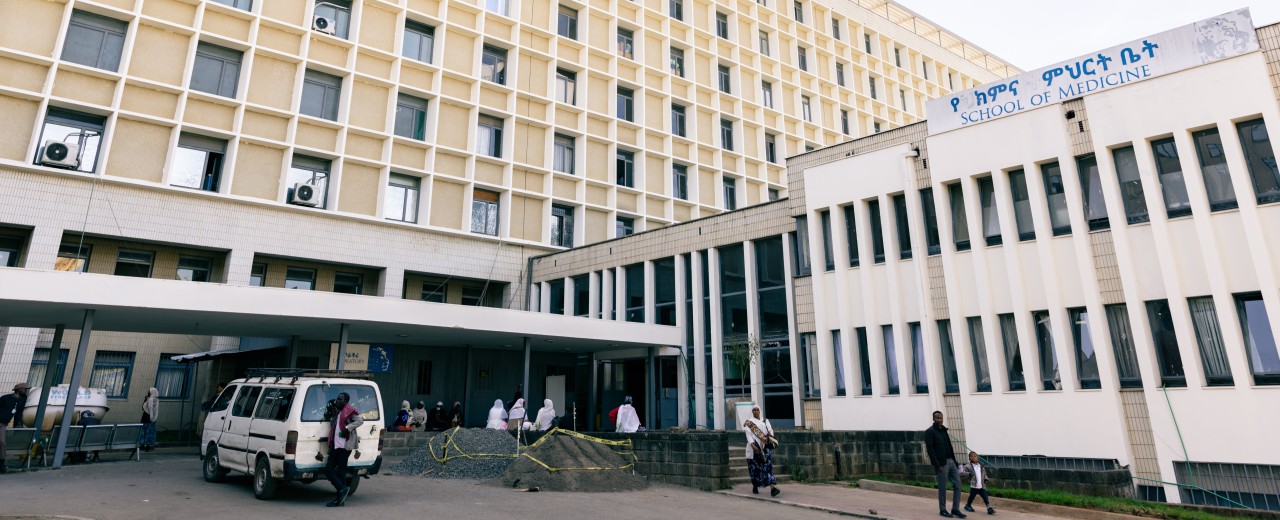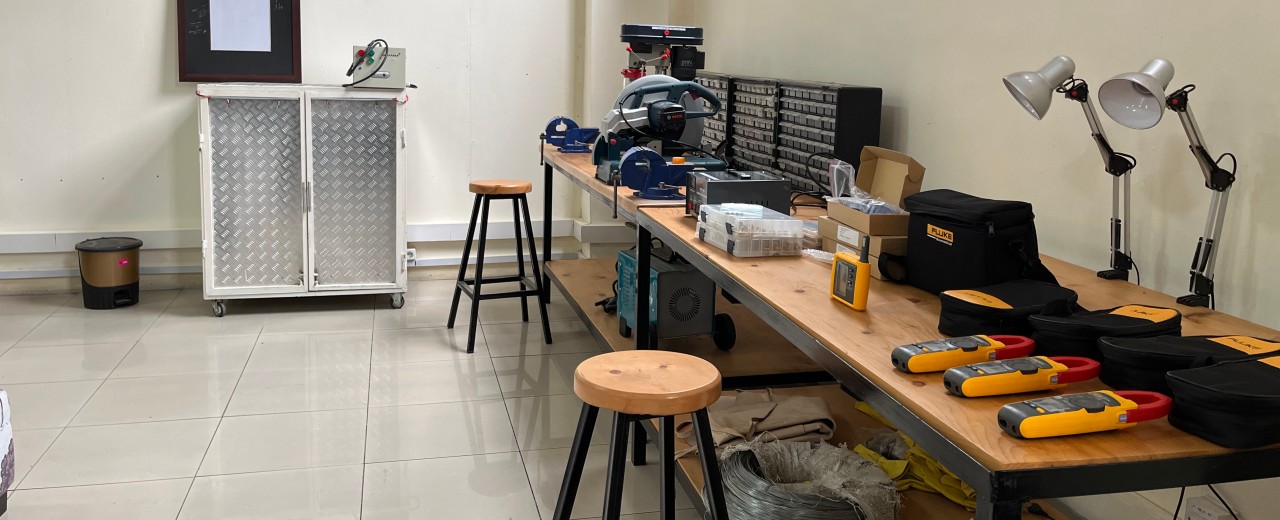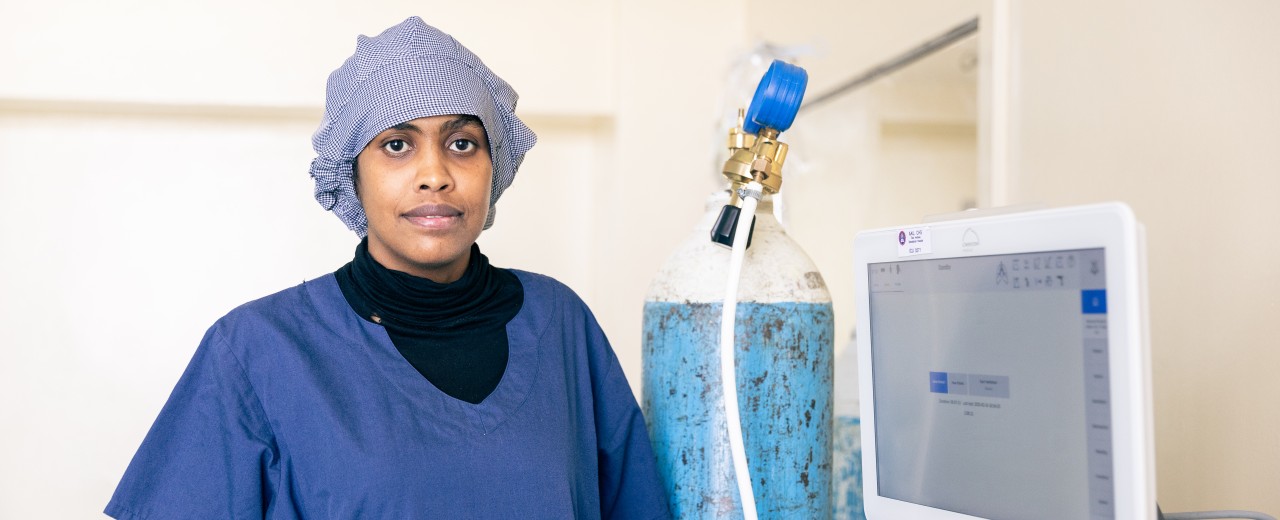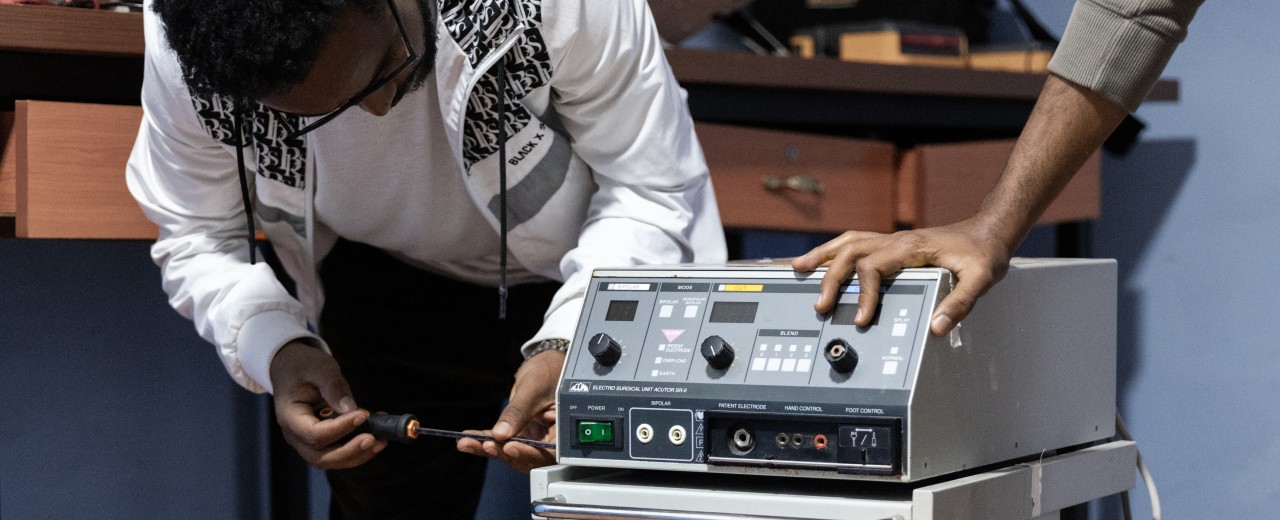News from 2025-04-07 / KfW Development Bank
KfW promotes training for medical professionals in Ethiopia
Equipment for intensive care units in a university hospital

Civil war between government troops and the so-called Tigray People's Liberation Front has been raging in Ethiopia since the end of 2020. Many people have been and continue to be confronted with the tragic consequences of these conflicts - and the already poor medical care is also affected. Like most African countries, Ethiopia faces a double challenge in terms of infrastructure and human resources. Medical staff are also poorly paid - many doctors have a second job as an Uber (“Ride” in Ethiopia) driver, for example. There is also a lack of trained medical technicians - but these are urgently needed for functioning intensive care units and regular maintenance of medical equipment.
KfW Development Bank has been involved in vocational training for many years on behalf of the BMZ - including training in the field of biomedical technology. The employment and income opportunities of trainees and students are increased through greater practical relevance and improved alignment with the needs of the health sector, and investments are also being made in the training of teaching staff. But diagnostic and treatment options are also being improved - by equipping vocational schools, training workshops and the teaching hospitals of the two medical faculties in the country, in Addis Ababa and Jimma.

KfW recently financed the equipment for a ‘Bio-Medical Design Studio’ at the Institute of Technology at Addis Ababa University. Here, 5th year students can develop their ideas for innovative medical products as their final project.
The Black Lion Hospital in Addis Ababa was founded in 1964 and has 700 beds. The hospital employs 200 doctors, almost 400 nursing staff and a good 100 other medical specialists - including medical technicians. As part of the medical technology project, medical equipment - ventilators and equipment for intensive care wards - is being procured, but nurses and doctors are also being trained on this equipment. Specialist staff are trained in maintenance and repair in the training workshops - which is also good for the service life of the equipment.

Dr Nura Kedir is the head doctor of the intensive care unit at Black Lion Hospital: "We opened this intensive care unit six months ago. It consists of six surgical and six internal medicine beds with a total of eleven ventilators and twelve monitors. We have another intensive care unit in the hospital, also with twelve beds.
With the funds provided by KfW, we were able to increase our capacity by 100 per cent. In the surgical intensive care unit, we previously had to cancel many operations because there were no ventilators. We also had problems with a lack of monitors and generally inadequate equipment. Our current problem is that we can't do everything the way we want due to a lack of spare parts. However, we have a biomedical workshop in-house where repairs can be carried out.
The additional beds allow us to admit patients earlier, which has helped us a lot. We also now have continuous 24-hour monitoring of patients."


Share page
To share the content of this page with your network, click on one of the icons below.
Note on data protection: When you share content, your personal data is transferred to the selected network.
Data protection
Alternatively, you can also copy the short link: https://www.kfw-entwicklungsbank.de/s/enzBWrMC.DOQA
Copy link Link copied